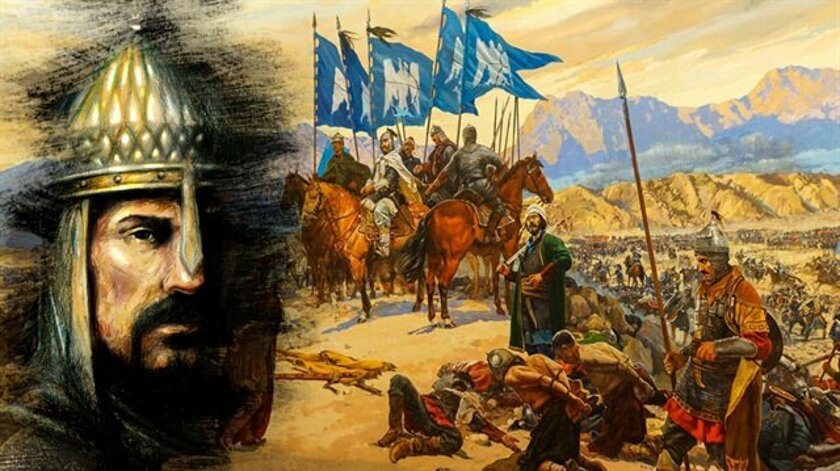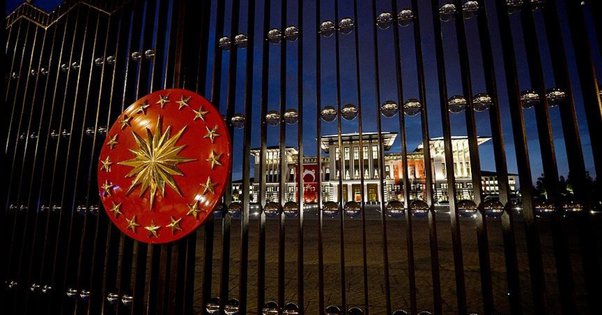Originally Answered: Is it right to claim that the Ottomans are the descendants of the Seljuqs, or is it a Turkish propaganda?
Originally asked question: Is it right to claim that the Ottomans are the descendants of the Seljuqs, or is it a Turkish propaganda?
Officially not, but unofficially YES.
Generally, the history when talked about the Turks in Anatolia, Alp Arslan and the Battle of Manzikert in 1071 is considered as the entrance of the Oguz Turks into Anatolia (one of many branches of the Turkic people), even though today historians can trace the entry of Turks a hundred years before trough traders and their new settler families, but this incident made it official.

There were numerous other branches of the Oghuz tribe inside of the Anatolia, who either to the same time or later established many principalities inside of the Anatolian land, but the Seljuk Empire was the ultimate biggest among all of them and lasted much longer and expanded into many neighbouring lands such as Iran or Levant.
When the Ottomans came into existence, there were still many principalities around and the Ottomans one of them, trying to set food with their new state in Anatolia. With time, all of these principalities either diminished by themselves or were taken over by the Ottomans and with that, just like the Seljuk Empire in its largest extension, became the undisputed ruler of all the different branches of the Oghuz Turks in the region.
When we take as a reference to the relationship between the Republic of Turkey, which is undisputed the successor state of the Ottomans, to say the Volume II Ottomans, then the relationship between the Ottomans and the Seljuks is not directly blood or merit-based like the above case, but rather it’s the last and true Empire which has survived here and absorbed all the former principalities and folk of the Seljuks inside of its state and still lives until today. From that perspective, yes, the Ottomans can be regarded as the Descendants of the Seljuks regarding Turkic cultural continuation tradition.
Even today, the Republic of Turkey goes further and considers since the foundation of the Republic of Turkey, itself as the continuation of all the former Turkic Empires throughout the history and depicts it with the order of Mustafa Kemal Atatürk in 1925 on the logo of the Presidential House:

(Picture: Entrance of the Presidential House with the historical 17 stars logo)
Where the 16 smaller stars are all the former Turkic empires who deceased to exist:
-Great Hun Empire
-Western Hun Empire
-European Hun Empire
-White Huns
-Gokturk Khanate
-Pannonian Avars
-Khazar Khanate
-Uighur Khanate
-Kara Khanid Khanate
-Ghaznavid Empire
-Great Seljuk Empire
-Khwarazmian Dynasty
-Golden Horde
-Timurid Empire
-Mughal Empire
-Ottoman Empire
The last and large star belongs to the last:
-Republic of Turkey
You will see among the list other Turkic branches and also Turco-Mogol mixed Empires, among with disputed Hunnic Empires which is for some historians a Turkic group and for some others arguing differently. But all of them are listed as the previous Empires, being Turkey as the last successor, from a psychological and cultural state tradition context.
Interestingly, you will not see for example the Safavid Empire inside of this list, another Turkic Empire builds in today’s Iran, not because they were the rivals of the Ottomans, but a simplistic Turkic tradition point of view, that it has mixed itself with Persian cultural assimilation, means the bloodline also according to the Ottomans broken and did not claim to be a Turkic empire, but rather a Persian cultural expansion.
So if you go by a direct heir system of a throne which was a clear system in Western Europe through history, the Turkic tradition emphasizes the ‘’greatness and survival of a Turkic state’’. There is no additional Turkic state today, even those in Central Asia, who can claim themselves as the continuation of the empires above, which leaves the last great Turkic Empire in the world, the Ottomans and his successor, the Republic of Turkey as the only ‘’true successor of Turkic state tradition’’.
You must understand the historical perception of certain races throughout history. The Turkic nomads were always spread into numerous steppes inside of Central Asia with a far lesser number of members than their neighbourhood such as China, which led most of the time, that they either united with the Mongols in the begin or one after another principality submitted themselves to the rule of a stronger power of Turkic principality and united themselves to a single state. It was a very often practise, that even though there were many Turkic principalities or Khanates, the tradition was that ‘’the winner takes all’’ and with that, they remove their numerous fewer numbers against the common enemy around the corner. That was also the reason that most of the time other principalities before in Europe lived over centuries side by side, but wherever the Turks entered, after a certain time, one of them has either absorbed the other small ones or they got united, which was also the fact in Anatolia, where the last of them, the Ottoman Empire has taken all the claim and survived with a new model, which we call today Turkey.
Hope I could explain it. Thanks.
Alexei Yahontov

Leave a Reply